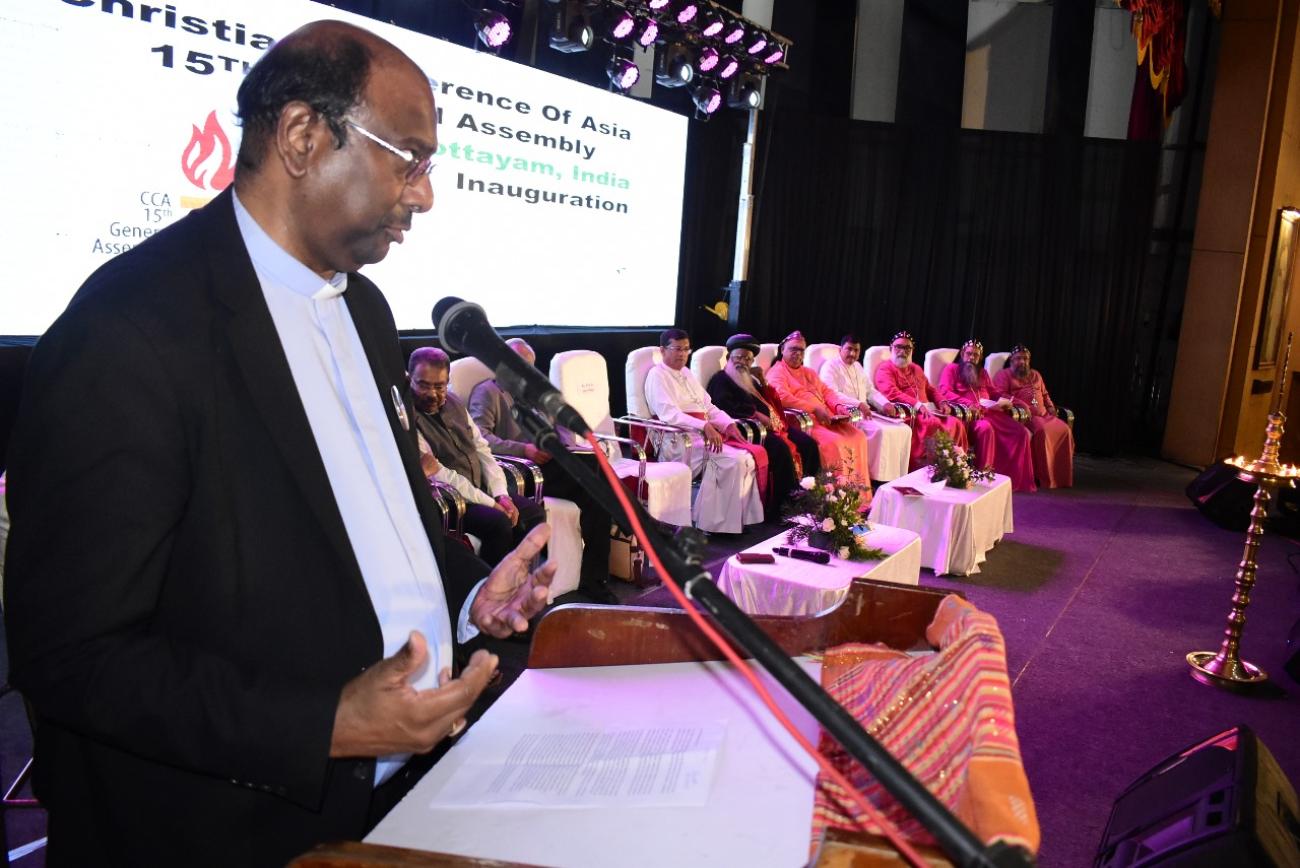WCC General Secretary Dr Jerry Pillay outlines signs of ‘poly-crisis’ or shocks being faced around the world

Kottayam, India: The first thematic presentation of the 15th General Assembly of the Christian Conference of Asia (CCA) was delivered by Rev. Prof. Dr Jerry Pillay, the General Secretary of the World Council of Churches, who outlined the signs of the times through the ‘poly-crisis’ or shocks being faced around the world today, such as geopolitical problems, and crises in the domains of energy, economics, and the climate. He noted the inability or unwillingness of political establishments to address such multidimensional and complex challenges.
Dr Pillay stated that the theme of the 15th CCA General Assembly, ‘God, Renew Us in Your Spirit and Restore the Creation’, especially the words ‘renew’ and ‘restore’, implies that something had been lost and that we must return to what we should be. This was the first step to real transformation. The church was in as much need of restoration as the world, marked by injustice, corruption, deceit, and unrighteousness, he observed.
“To be created in the image of God provides a great honour––and a great responsibility,” said Dr Pillay, providing several theological bases for why it was imperative for the Christian community to take the climate crisis seriously, being called to exercise responsibility and care.
“Human beings, as moral agents and agents of social change, possess the power to make positive moral choices and engage in liberating actions aimed at the transformation of society in accordance with the moral norm of justice. Justice demands that we focus especially on meeting the needs of the poor and oppressed both domestically and globally. Justice must also be extended to non-human life. Thus, economic policies and systems must also be evaluated socially and ecologically on the basis of their benefits and harms to the well-being of all in our interdependent relationships. In harmony with divine purpose, the human being (especially the Christian) must be radically involved in the struggle for justice, and willing to suffer courageously for the redemption of the human community,” said Rev. Dr Pillay.“As General Secretary of the WCC, I observe on a daily basis how far we are from what God desires and wills for the world. God wants justice, reconciliation, unity, and peace. What we desire is disunity, discord, hatred, war, and divisions. It is not surprising that the world is in a mess – That is why we have to constantly pray, God, renew your Spirit in us, and restore your creation. It is an acknowledgement that we cannot do it by ourselves and that we need God’s Holy Spirit to help us. God’s spirit can do the impossible. Let us keep praying, walking, and working to restore God’s creation with God leading us. As we pray, God renews us in God’s Spirit and restores the creation; let us pray by saying: “Lord, start with me, and work in me, and through me to restore your creation,” said Prof. Dr Pillay in the first thematic address that offered enthusiastic encouragement to all Assembly participants at the commencement of the General Assembly.
The 15th General Assembly was inaugurated by Prof. Dr Pillay in the presence of a galaxy of church and ecumenical leaders across Asia and participants who were specially invited to attend the celebrative worship service and the opening ceremony.
The 15th CCA General Assembly is being held in Kottayam, India, from 28 September to 3 October 2023.
For more photos (photo gallery) please click here: Thematic Presentation 1 Keynote Address, 28 September 2023










